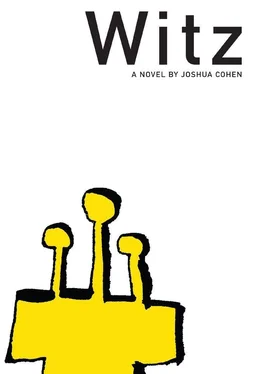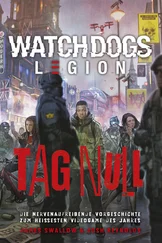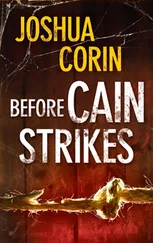That’s not mine, Kaye whispers as the hat lands on his head.
Thief! the mensch yells, accusing; he leaps in the air, upon finding ground his crutch snaps in two, into two little limbs, and he steadies himself, leans, waves the amputee splinters at Kaye, wildly, clattering them on the bars, between them.
Two Security scamper over, pat Kaye down with lingering hands.
Your papers, they ask, your passport and visa, your name, date of birth, which would you prefer: cash or credit?
This is preposterous. I have nothing of the sort. You know my identification’s been confiscated.
Is this yours? one Security asks, this the short fat mensch; the other’s as tall as his partner’s wide, thin as he’s short: always, they were hired that way from birth, have been bred for this gig — without culture, tradition’s convention, how would these two ever get work, stay together? He waves around the Room 50 key he’s found in Kaye’s pocket, turned the outsized iron key the onelegged mensch had used to unlock his teeth. How’d he exchange it so well, with such sleight, Kaye thinks: no doubt about it, these are professionals.
A woman handed it to me, a woman who had my hat.
You expect us to believe a woman stole your hat? says the tallskinny, taking the mensch’s from Kaye’s head and snooping his nose around the thin lining.
Not this hat — this one isn’t mine!
And so you’re also a liar! the onelegged mensch says, he’s leaning between the bars and panting, heaving his lungs out; he broke my crutch, too…shortfat takes hold of Kaye with one hand, liberally pinches his fiancée, unprotesting, with the other, as tallskinny goes to telephone, maybe, and never returns; shortfat relents, it’s getting dark and there’s Curfew to think of, last rounds coming on, rubs his hands for warmth, grows tetchy about the eyes and mouth then nervously asks the old mensch — who’s turned out in his second statement to the officer to be only the cemetery’s (and at that, third asst.) caretaker — for the time…are you sure that’s exact?
Quite.
And so shortfat dismisses the caretaker, nods to Kaye his release, walks up the street leaving him alone, without fiancée or Group — one gone back to plead his case to the head concierge (The Swiss is his title), who she’s been told has vast intercessionary connections, unspecified privileges, abusable power; the others gone showered, then mealed again to their sleeps, forgetting about everyone not dreaming their dream — as Kaye, enraged, freecaged, tries once last to bend the bars of the gate, smacks them with his head, flails in an exhaustion of even frustration.
You’d better be getting back to your hotel, shortfat yells over his shoulder, it’s Curfew.
Soon enough. Whenever we want.
We wouldn’t want you getting into any trouble you can’t afford.
By now, it’s dark, and the Cemetery would be closed: he’ll have to try again tomorrow; that is, if Faye’s up to it, if he is, not too sick from a night out in the snow; if she’d still love him, if he’d love her still, if they’d let him live just one more moon into morning.
A trashcan upended to its rumbustious side tumbles past him a laugh down the street — rolled in snow, rolling, still burning cold: crumpled corrugated with letters that’ve been sent by and to these tourists, his tourists, these postcards not censored, only forbidden, unsent, consigned to, cosigned by, a sinister flame. Dear Father dead father, and yet, never Sincerely. A dissevered chimney bellowing ash, the ciphers of sentiment’s cinefaction: Kaye follows the smoke, as he slips down the street, and every other step he takes he’s making moves for his hat, though he knows it’s not there.
It seems to be the season of disappointment, now, doesn’t it?
And so, in the spirit, here’s another interpretation: it’s that the Cemetery, this cemetery, was open all the while. It has been open, and is open still, six days a week dawn to dusk, major holidays excepted — though if it shuts its gates a moment too early upon Friday afternoons, which is the eve of our Sabbath, who can blame them, who would — and that anyone who ever wanted to might’ve walked in, and wandered around, without hindrance or hurt, beheld the Grave, had their audience, spent however satisfactory hours in contemplation, in suitable prayer, appeal, thanks or no thanks, a murmuring of hope, the laying of a florid rock, mulling over own mortalities, your blessing, your call. Without denial, without interruption. But it’s that these visitors, these maudlin tourists, wouldn’t have wanted that, wouldn’t have had it that way; it’s a situation existing only in their disappointment, what a waste: as it was, as it is, as it could’ve been, as it still can be — they’d file in, to pay not admission but homage, respect (entrance is free, as it is to every cemetery, the way it should be: after all, the people interred, the permanent visitors, the visitors permanentmaking, they’ve already paid for the privilege of any future visitation, dearly, in death then in the fees for death’s upkeep); the Gate’s open, any gate’s open; generous hours are prominently posted, again: excluding holidays secular, and religious, and Shabbos; the elderly groundskeeper or caretaker, call him what you will and he’ll smile, he’s always smiling, he welcomes the visitors, happy to have them, he’s lonely, he pities; the Grave’s kept in flowers, it’s kept full of them season depending — they’re sprouting from the very earth that’s the grave of all graves.
As for the mensch so sought after, this Cemetery’s most visited burial, this famous writer of stories and novels unfinished by night as by day an ironic functionary, a bureaucrat’s sarcastic conscience, this lowly insurance assessor (and they need insurance now like a hole in the head, Kaye’s thinking for whose peace of mind) — he lies alongside his father in a dark, leafy plot; given the relationship, their grave’s incredibly undisturbed, at peace is the feeling. He lies with his mother, also, they both do, under a stone that, however, is not the original. Regrettably. Wasteful. Ultimately, for its own good. No, all the originals are for the museums now, organizations only recently not for profiting, lately chartered, commissioned, just securing the necessary paperwork and approvals, stamps, clearances, and blessings to move in, to refurbish, spiff and shine. Now, about their own rejections, their touristy trials by delay, their processes interminably scheduled — petition after petition, only frustration to follow appeals to any Authority designated supreme — here’s the truth: they secretly wanted to be turned away, they not so secretly want it ; we welcome that species of horror: after all, it’s all part of the experience, isn’t it, figured, refigured, packagedin. Terrible, that in the end it’s mere — entertainment. Anyone who has achieved purpose has failed it. Anyone who gains entry has lost life. But neither are such wretched exempt: if they prevail, even they must be humbled; we, too, must cover our heads — with something, with anything…with even the sky, or with the earth shoveled above us, a stone.
All the sites taken care of, the musts, the have tos and don’t misses, checked off the To Do, blackened from red as if blood in the night lacking air, canceled from memory in anticipation of the final cancellation (no refunds will be offered, don’t even think it to ask), annulled in the face of the allannulling, the hind allannulled — they’re indulged, as if thanked, given the grace of a single allowance, their last. They’re shepherded perfunctorily, if with a slight disappoint with regard to the derision expected by most, to the Square, and into its Church: before any sacrifice, these lambs need time to mature, need to fatten their lean time, need to be fleshed out in full so that we know what exactly we’ve slaughtered — they’re lain down in a valley of glass, watched over by windows eve’s eyed…a marble pasture of Church. Though others hold it’s a Cathedral. Godfearing forget it, faith me no faith — it’s naming that’ll always be the duty most sacred: to church or not to church, that’s not the question — it’s naming, it’s number, its Record. And so the answer’s that no one knows from Cathedrals anymore, and that this building, whatever it is, whichever it was, whether the footstool of the bishop or the throne of the homeless, might be anything at all in its next incarnation: an orphanage, a hospital, warehouse, granary, stables; or else, it might be left empty, to be remade if into inutility, purposelessness, without worth; it might even be destroyed, like the rest, like its worshippers here, rubbled to the rabble of the Square, never to be remade, never to be rebuilt, resurrected in memory only through the sky that, over the centuries, in the course of the worship’s erection, has held its spiring shadow, now faded in the ambition of form; the heavens would waste away into a nothingness, a void, found in the volute shape of the grandeur that once shaded the further light of the furthest sun from the earth and its barren cold dark. Though if a grandeur, then a grandeur unfinished, always imperfect, imperfecting, anonymously flawed in its failure to effect, to aid, in yet another opportunity forsaken by God to rejoin us in our own supplication. And so as not to embarrass them in this moment of need, let’s say it’s whatever they want it to be — a church, a cathedral, Saint Someone’s, Saint Other’s, Saint Anyone They So Desire’s…if only they pray hard enough for it; only the best for the conduct of their martyrdom, their decisive confession, what else to expect from such accommodating hosts? No need to thank us, just die. To fist a hole in the ice of the font, knuckleshards from the lip of the piscina, a flotsam of blood, stoupy skinchips, bergs of bone. With quick nervous fingers they flick themselves pure with the lick of filthy water restive under the freeze. Maybe it’s holy, blessed — by their pain, by their (even the Virgin groans) tears. To kneel at the threshold, then rise, they make their way toward the altar.
Читать дальше












